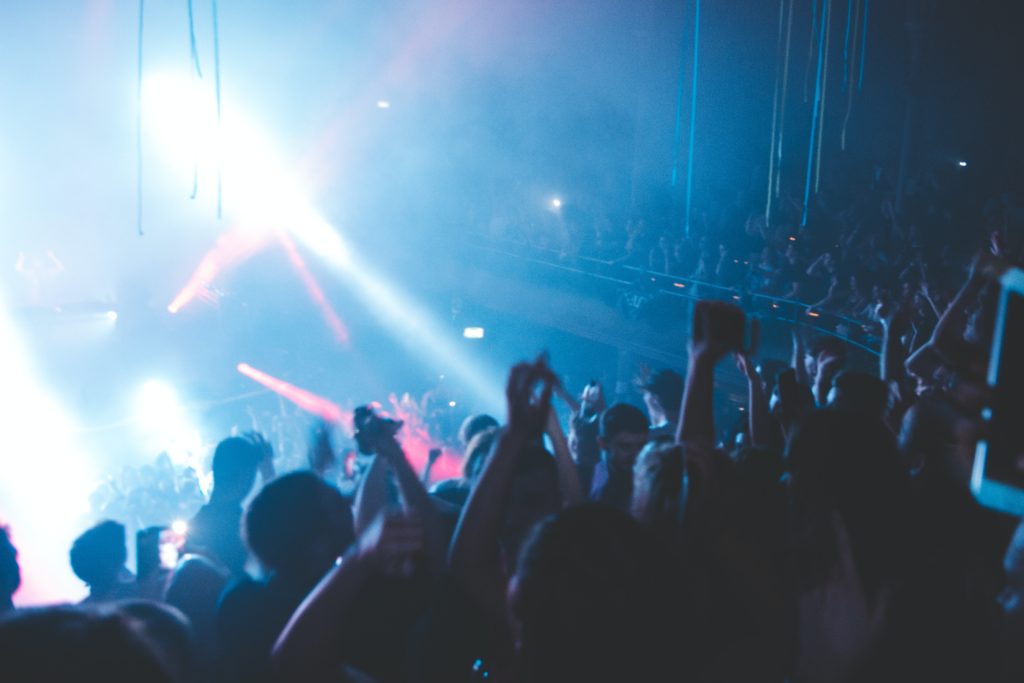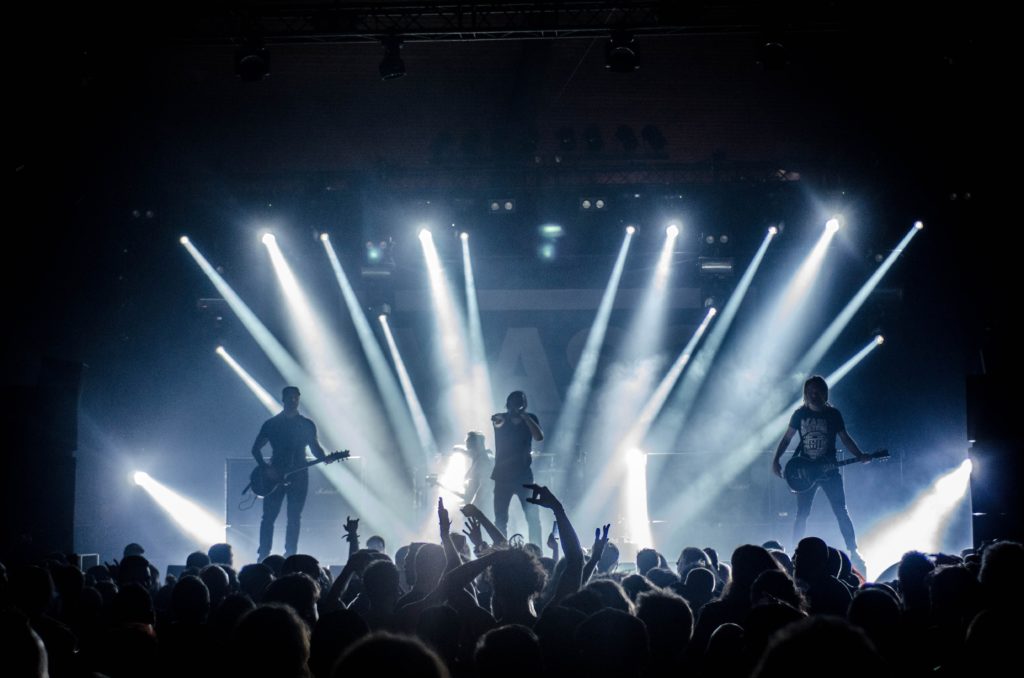
Tips for an Effective Concert Ticket Pricing Strategy
It’s no secret that the pandemic has been rough on everyone. But despite the ups and downs we’ve faced as a community, Americans are ready to return to their favorite activities. Over half of American consumers have demonstrated an interest in splurging on a treat for themselves as a kind of post-pandemic revenge spending.
For many, this looks like indulging in a concert ticket at a price they wouldn’t have paid before COVID-19. Still, the goal is to pack the venue for every event. The trick for live music event planners is to create an optimized concert ticket pricing strategy.
Between inflation and consumer demand, the average cost of a concert ticket has skyrocketed in recent years. As the concert industry took a $30 billion loss in 2020, it’s tempting for event planners to set ticket prices as high as possible to make up for lost revenue.
But it’s essential to find the balance between maximum profit and costs that won’t scare too many customers away. Yes, live events are back and better than ever, but you still need the right tools to organize your post-pandmic events and create the most effective concert ticket pricing strategy that’s a win for your budget and your returning concert-goers.
What Elements Go into a Concert Ticket Pricing Strategy?
Your concert ticket pricing strategy centers around determining the best ticket price to keep concertgoers happy and give them value while providing revenue that keeps you happy and operating successfully.
Putting on a successful concert is no easy feat. There are a seemingly endless number of variables that impact an event budget and, ultimately, the concert ticket pricing strategy. When you break down all of the elements involved in developing a show, it’s no surprise that tickets have to cost so much so everyone can make a profit.
Let’s explore some of the aspects of concert ticket pricing.
A Shift in the Industry
The music industry was already in the middle of a massive shift before the pandemic hit. Back in the good ol’ days, artists relied on album sales (vinyl, tapes, CDs) for a significant chunk of their profits. Now, many music lovers prefer the ease of electronic downloads. We can thank those who are still clinging to their retro infatuations, but that group alone doesn’t make up for the decline of returns on streaming services for artists.
Because artists make less money from album sales, most of their revenue comes from live events. Between concert tours, merchandise sales, and the people who love their record/tape/CD collection, most artists can make up for the impact of electronic streaming.
This shift affects your concert ticket pricing strategy because the artists will either want a larger percentage cut or a higher base payment. And without the talent, you have no show in the first place. The more popular the artist, the higher your ticket pricing will inevitably be.
Related: What Goes Into Concert Cost Breakdown?
Size of the Show
Another consideration for an effective concert ticket pricing strategy is the scale of the show being produced. If the artist is an up-and-coming singer-songwriter playing a small club, the tickets must be priced differently than the mega-star’s stadium tour.
Part of that is because the extravagant show will be a spectacle instead of simply a music event. Bigger shows require theatrics—smoke machines, costume changes, backup dancers, full bands, props, fireworks, lasers—you get the idea.
All of these elements play a role in a concert ticket pricing strategy because you have to make up for every penny you spend on a given show. Smaller-scale shows don’t have to be priced as high because you don’t have to budget for all the accouterments.
Booking Fees
If you plan to use a vendor to sell the tickets for an event, you must factor booking fees into your concert ticket pricing strategy. Understanding the percentage that vendors will take for each ticket purchase will help you determine the best price for a ticket so you can maximize your revenue. Will that additional fee come out of your pocket or the customers’?
If it’s coming out of your pocket, you’ll likely want to increase the ticket price to make up for the amount you’re giving to the vendor. If it’s coming out of the customers’ pockets, you may want to ensure that the price after booking fees isn’t so high that it deters people from completing their purchase.
Safety Protocols
Since many consumers face a high level of COVID fatigue, which makes them more willing to attend a live music event, industry pros have to factor in accommodations for health and safety. While some concerts may require mask-wearing and proof of vaccination or negative test results, many still take additional precautions to ensure they don’t become the next superspreader event.
Over 91% of live music professionals stated that their future events will budget for increased sanitation throughout the venue. A majority of industry leaders also cited cashless/touchless payment methods, increased screening, and significantly reduced capacity as other COVID-related concessions they’re making for events. These factors contribute to concert ticket pricing because they mean increased staffing, tools, and a higher breakeven point.
Additionally, many industry pros are focusing on outdoor events, which pose less of a risk for COVID-19 than indoor venues. Music festivals and open-air concerts currently seem to have better luck selling more tickets because people feel more comfortable attending a large event outside.
Budget and Breakeven
Once you understand the various factors that play a part in how much it will cost to make an event happen, you can begin crafting the budget. Having a clear and accurate budget will help you develop your concert ticket pricing strategy because it will help you identify your breakeven point.
Your breakeven point is the amount of income an event needs to cover the expenses. Anything above the breakeven point goes into your pocket. Ideally, you’ll be able to find a concert ticket price that maximizes the amount of money that you get to take home at the end of the day, yet still keeps your concert-goers feeling like they’ve gotten a fair deal for a great concert experience.
Related: 8 Tips on Building a Concert Budget Template to Guide the Settlement
Tips for Optimizing Your Ticket Price
With your budget and breakeven point at your side, you’re ready to set your ticket prices. The best methods for creating an effective concert ticket pricing strategy include:
Identifying a Realistic Ticket Sales Quantity
In a perfect world, every show would sell out. However, we have to determine a realistic number of tickets that will likely sell for an event. Anything above that is a bonus, and you shouldn’t stop aiming high. But being practical is crucial at this stage.
You’ll take the number of tickets you think you can legitimately sell and divide it by your breakeven point. This will give you the lowest price you can sell your tickets at to break even and give you a baseline for the cost of your tickets.
Researching Similar and Competitor Events
As you move up from your baseline to maximize event revenue, it’s time to review other events. Although COVID concerns will play a role in ticket sales, the performances of previous events provide a guideline for how you should price tickets for your upcoming concerts.
You can evaluate previous events from the same, similar, and competing artists and venues. If a similar event was priced around your current ticket price estimation and was a massive success, then you know you’re on the right track. Alternatively, if the tickets were priced similarly to your estimation, but the event barely sold any tickets, you know that you need to lower your price.
It’s also helpful to know what else is happening on the same day as your event. If you’re planning a concert at the same time that the city’s pro football team has a game, you might need to lower your ticket price to encourage people to skip the game. Or, if there’s nothing else for people in the area to do, you might be able to get away with adding a couple of dollars to the ticket price.
Using the Right Tools
Crafting an effective concert ticket pricing strategy is significantly easier when you have the right tools at your disposal. If you look for powerful live music event planning software, you’ll have everything you need to determine the best ticket prices at your fingertips.
By integrating your budget, calendar, contracts, event history, and more into one easy-to-use platform, you’ll save time and be able to adjust your strategy quickly based on real-time insights. You’ll be able to track ticket sales for each event and keep a log of previous events to make informed decisions about how to price the tickets for new concerts.
Get the Software That Will Help You Set the Right Ticket Price Every Time
There’s no need to keep scratching your head as you try to do all the math involved in creating a foolproof concert ticket pricing strategy. With the help of AI-powered technology, you’ll have accurate financial data presented to you in seconds, so you can make the most of your time while putting the most money back into your pockets.
Prism is the elite live music event planning software that’s guaranteed to help you effectively price your tickets for every event. It’s made by live music industry professionals for live music industry professionals, like you. The system intuitively helps you plan killer events so you can spend more time focusing on the fun parts of the music scene. What are you waiting for? See how Prism can transform your events and ticket pricing strategies today.

Matt Ford is the founder and CEO of Prism.fm, an Austin-based software company revolutionizing live music event management. With a background in entrepreneurship and a degree from the University of Wisconsin-Madison School of Business, Ford combined his self-taught coding skills with firsthand experience as a concert promoter to address the inefficiencies he observed in the industry. In 2018, he launched Prism.fm, an all-in-one platform designed to streamline operations for venues, promoters, and agencies by replacing cumbersome spreadsheets with integrated tools for booking, financial tracking, and contract management. Under his leadership, Prism.fm has grown significantly, achieving $3 million in annual recurring revenue post-COVID and securing over $15 million in funding . Ford’s commitment to building user-centric solutions has positioned Prism.fm as a trusted partner for over 1,500 venues and promoters worldwide.

